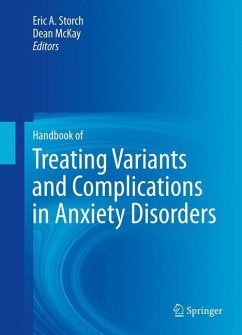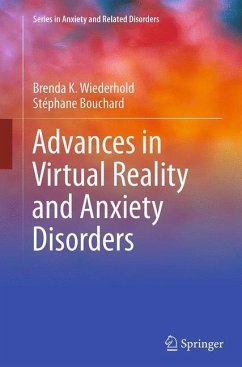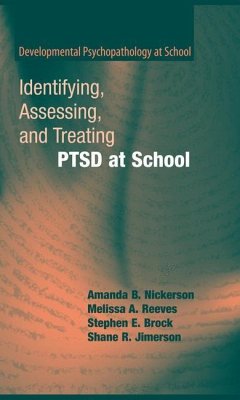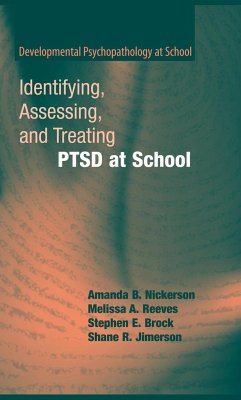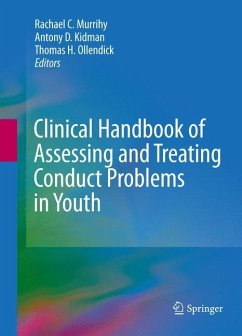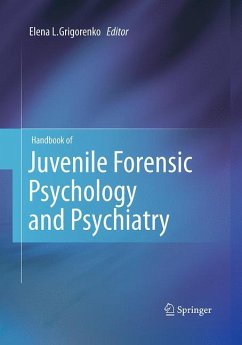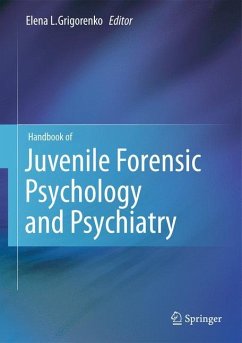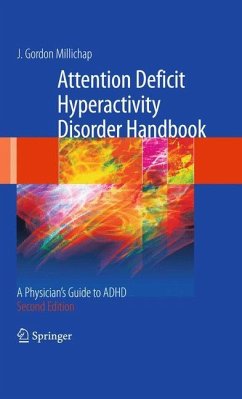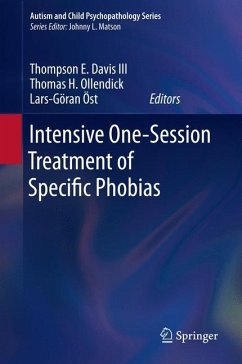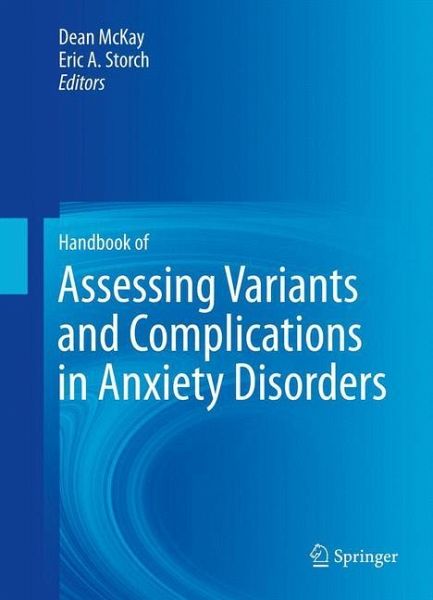
Handbook of Assessing Variants and Complications in Anxiety Disorders

PAYBACK Punkte
76 °P sammeln!
The Handbook of Assessing Variants and Complications in Anxiety Disorders assembles current findings on assessment methods and applies them to common complicating factors, including comorbid personality and behavioral problems. Chapters examine innovative approaches to assessment of anxiety in children and adults, provide leading insights into timely topics (e.g., school refusal, self-injurious behaviors), and analyze strengths and weaknesses of widely used assessment tools. In clarifying the assessment process, contributors give readers a clear perspective on choosing treatment options in kee...
The Handbook of Assessing Variants and Complications in Anxiety Disorders assembles current findings on assessment methods and applies them to common complicating factors, including comorbid personality and behavioral problems. Chapters examine innovative approaches to assessment of anxiety in children and adults, provide leading insights into timely topics (e.g., school refusal, self-injurious behaviors), and analyze strengths and weaknesses of widely used assessment tools. In clarifying the assessment process, contributors give readers a clear perspective on choosing treatment options in keeping with the trend toward targeted, evidence-based practice, and pinpoint needs for further research. The Handbook's coverage spans the anxiety spectrum, including areas such as:
Assessment of social and generalized anxiety disorder.Neuropsychological assessment of obsessive-compulsive disorder.Intelligence testing and treatment planning with children.Assessment of substance abuse and dependence in anxiety disorders.Personality disorder assessment in clients with anxiety disorders.Functional assessment of comorbid and secondary disorders: identifying conditions for primary treatment.
The Handbook of Assessing Variants and Complications in Anxiety Disorders is an essential reference for researchers, scientist-practitioners, and graduate students in clinical child, school, and developmental psychology; social work; psychiatry; psychotherapy; counseling; and pediatrics. And its companion volume, the Handbook of Treating Variants and Complications in Anxiety Disorders, translates these findings to the next stage of care.
Assessment of social and generalized anxiety disorder.Neuropsychological assessment of obsessive-compulsive disorder.Intelligence testing and treatment planning with children.Assessment of substance abuse and dependence in anxiety disorders.Personality disorder assessment in clients with anxiety disorders.Functional assessment of comorbid and secondary disorders: identifying conditions for primary treatment.
The Handbook of Assessing Variants and Complications in Anxiety Disorders is an essential reference for researchers, scientist-practitioners, and graduate students in clinical child, school, and developmental psychology; social work; psychiatry; psychotherapy; counseling; and pediatrics. And its companion volume, the Handbook of Treating Variants and Complications in Anxiety Disorders, translates these findings to the next stage of care.





